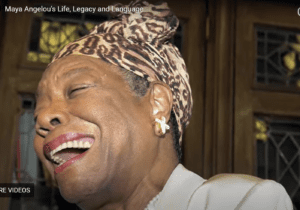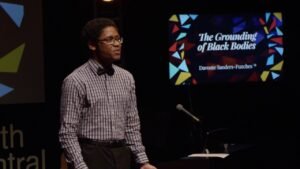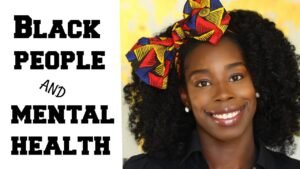African American Mathematicians Who Changed the World
African American Mathematicians. The contributions of African American mathematicians have played a vital role in shaping the landscape of mathematics and its applications throughout history. Despite facing systemic barriers and societal challenges, these mathematicians have made groundbreaking advancements that not only challenged the status quo but also paved the way for future generations in the field. The rich legacy of African American mathematicians is a testament to resilience, creativity, and the pursuit of knowledge in the face of adversity. Historically, the intersection of race and mathematics has often been overlooked, leading to a lack of recognition for the significant achievements of African Americans in this discipline. From the early days of slavery, where education was largely denied, to the Civil Rights Movement, African American mathematicians have consistently fought against oppression and inequality while contributing to the body of mathematical knowledge. Their work has not only advanced theoretical mathematics but has also had practical implications in fields such as engineering, economics, and astronomy. In recent years, there has been a growing recognition of the importance of diversity in STEM (Science, Technology, Engineering, and Mathematics) fields, which has highlighted the need to celebrate and promote the work of African American mathematicians. By examining their contributions, we not only honor their legacy but also inspire future generations to pursue careers in mathematics and related fields. This introduction sets the stage for a deeper exploration of the notable figures within this community, the barriers they faced, and the promising future that lies ahead for African American mathematicians.
In recent years, there has been a growing recognition of the importance of diversity in STEM (Science, Technology, Engineering, and Mathematics) fields, which has highlighted the need to celebrate and promote the work of African American mathematicians. By examining their contributions, we not only honor their legacy but also inspire future generations to pursue careers in mathematics and related fields. This introduction sets the stage for a deeper exploration of the notable figures within this community, the barriers they faced, and the promising future that lies ahead for African American mathematicians.
II. Notable African American Mathematicians
The contributions of African American mathematicians have been pivotal in shaping the field and advancing mathematical understanding across various disciplines. Their work not only reflects their brilliance but also illuminates the resilience and ingenuity that have emerged in the face of systemic barriers. Below, we spotlight three notable figures whose contributions have left an indelible mark on mathematics and related fields. A. Evariste Galois and His Impact on Modern Algebra Although Evariste Galois was not African American, his work laid the groundwork for modern algebra, which many African American mathematicians have built upon. Galois' development of group theory and his insights into polynomial equations have influenced numerous mathematicians, including those in the African American community. His story resonates deeply, particularly in the context of overcoming adversity, as he faced significant challenges during his life, including political strife and premature death. The legacy of Galois continues to inspire African American mathematicians as they explore and expand upon his theories, applying them to contemporary problems in mathematics and computer science. B. Katherine Johnson and Her Contributions to NASA Katherine Johnson stands as a beacon of excellence in mathematics and a trailblazer for African American women in STEM. Born in 1918, Johnson displayed extraordinary mathematical talent from a young age. She became a "human computer" at NASA, where her calculations were critical to the success of the United States' first manned spaceflights. Johnson’s work on trajectory analysis for the Apollo missions, particularly her calculations for the historic 1969 moon landing, showcased her precision and problem-solving skills. Her contributions not only advanced aeronautics but also underscored the importance of diversity in scientific endeavors. In 2015, she was awarded the Presidential Medal of Freedom, recognizing her trailblazing role and inspiring countless future generations of mathematicians. C. David Blackwell and His Work in Statistics David Blackwell was a pioneering figure in the field of statistics and a prominent mathematician who broke barriers in academia. Born in 1919, he became the first African American to be elected to the National Academy of Sciences. Blackwell made significant contributions to the fields of statistical decision theory, game theory, and Bayesian statistics. His work has had lasting implications in various applications, from economics to the social sciences. Beyond his research, Blackwell was a dedicated educator who mentored many students, emphasizing the importance of diversity in mathematics. His legacy continues to inspire both African American mathematicians and aspiring statisticians around the world, reminding them of the potential to effect change and innovate within their fields. In recognizing these notable figures, we acknowledge not only their individual accomplishments but also the broader narrative of African American mathematicians who have shaped the discipline and inspired future generations. Their stories highlight the intersection of talent, perseverance, and the quest for equality in the pursuit of knowledge.
III. Barriers Faced by African American Mathematicians
Despite the significant contributions of African American mathematicians throughout history, they have encountered numerous barriers that have hindered their progress and recognition in the field. These obstacles can be traced through various dimensions, including historical discrimination in education, challenges in gaining recognition and funding, and the critical need for mentorship and support networks. A. Historical Discrimination in Education The educational landscape for African Americans has been fraught with systemic inequalities, particularly during the 19th and 20th centuries. Segregation laws and discriminatory practices often relegated Black students to underfunded and inferior educational institutions, severely limiting their access to quality mathematics education. The legacy of these barriers persists, as many African American students still face challenges in accessing advanced coursework and resources in mathematics. The lack of representation in higher education mathematics programs continues to perpetuate a cycle of exclusion, where African American mathematicians are underrepresented in both academic and professional settings. B. Challenges in Gaining Recognition and Funding Even when African American mathematicians achieve significant accomplishments, they often struggle to gain the same level of recognition as their peers. This disparity can be attributed to a combination of biases within academic and professional circles, where contributions from Black mathematicians may be overlooked or undervalued. Additionally, securing funding for research and projects has proven to be more challenging for these mathematicians, further limiting their ability to innovate and contribute to the field. The systemic biases in grant allocation and professional advancement create an environment where African American mathematicians must navigate additional hurdles to achieve the same success as their counterparts. C. The Importance of Mentorship and Support Networks Mentorship plays a crucial role in the development of young mathematicians, yet many African American students lack access to role models and mentors who share similar backgrounds. The absence of strong support networks can hinder professional growth and limit opportunities for collaboration. Establishing mentorship programs that connect aspiring mathematicians with experienced professionals is vital for fostering a sense of belonging and motivation within the field. Additionally, support networks can provide essential resources, guidance, and advocacy, helping to dismantle some of the barriers faced by African American mathematicians. The combination of historical discrimination, challenges in recognition and funding, and the need for robust mentorship and support networks underscores the complexities that African American mathematicians navigate. Addressing these barriers is essential for creating a more equitable and inclusive environment in mathematics, where all voices can contribute to the advancement of the discipline.IV. The Future of African American Mathematicians
As we look toward the future, the landscape for African American mathematicians is beginning to shift, reflecting a growing recognition of the importance of diversity in STEM fields. This evolution is crucial not only for the individuals involved but also for the broader scientific community, as diverse perspectives drive innovation and creativity in problem-solving. A. Increasing Diversity in STEM Fields The push for increased diversity in STEM is gaining momentum, with educational institutions, government agencies, and private organizations recognizing the need for a more inclusive environment. Programs aimed at recruiting and retaining underrepresented minorities in mathematics and related fields are being implemented at various levels—from primary education to graduate studies. Initiatives such as scholarships, summer enrichment programs, and partnerships with historically Black colleges and universities (HBCUs) are helping to create pathways for young African American students to pursue careers in mathematics. By fostering an inclusive culture, the next generation of African American mathematicians is empowered to thrive and contribute to the field. B. Promoting Initiatives for Young Mathematicians Mentorship and community support play pivotal roles in the development of young mathematicians. Organizations such as the National Society of Black Engineers (NSBE) and the Association for Women in Mathematics (AWM) are actively working to create networks for young African American mathematicians. These initiatives provide access to role models, professional development opportunities, and collaborative environments that encourage growth and exploration. Additionally, enrichment programs that focus on mathematics, coding, and data science are critical for equipping students with the skills necessary to excel in these competitive fields. By promoting these initiatives, we can cultivate a new generation of African American mathematicians who are prepared to make significant contributions to the discipline. C. The Role of Technology in Enhancing Access to Education Technology is playing an increasingly important role in shaping the future of education, especially for underrepresented groups in mathematics. Online learning platforms and resources offer unprecedented access to high-quality educational materials, allowing students to learn at their own pace and on their own terms. Virtual mentorship programs can connect aspiring mathematicians with experienced professionals, providing guidance and support regardless of geographical barriers. Moreover, advancements in computational tools and data analytics are opening new avenues for research and exploration in mathematics. By leveraging technology, we can enhance access to educational opportunities and create a more equitable landscape for African American mathematicians. In conclusion, the future for African American mathematicians is bright, with a growing commitment to diversity in STEM, supportive initiatives for young mathematicians, and the transformative power of technology. As we continue to break down barriers and expand access to resources, we pave the way for a more inclusive mathematical community, one that embraces and celebrates the contributions of African American mathematicians. Their potential to drive innovation and inspire future generations is boundless, and as we invest in their growth, we ensure that the field of mathematics flourishes with diverse voices and perspectives.V. Conclusion: Summarizing the Contributions and Future Potential of African American Mathematicians
The contributions of African American mathematicians have significantly shaped the landscape of mathematics and science, despite the numerous barriers they have faced throughout history. From the pioneering work of figures like Katherine Johnson, whose calculations were crucial to the success of NASA's early space missions, to the groundbreaking statistical theories developed by David Blackwell, the impact of these mathematicians is profound and enduring. Their achievements not only highlight the extraordinary talent within the African American community but also serve as a powerful reminder of the importance of diversity in academic and professional fields. As we look to the future, the potential for African American mathematicians is bright. Initiatives aimed at increasing diversity in STEM fields are gaining momentum, fostering an environment where young mathematicians can thrive. Organizations and educational institutions are increasingly recognizing the need to promote mentorship and support networks, providing essential guidance to aspiring mathematicians. Furthermore, advancements in technology are enhancing access to education and resources, creating new opportunities for underrepresented groups to engage with mathematics and pursue careers in this vital discipline. Frequently Asked Questions (FAQs) about African American Mathematicians
1. Who are some notable African American mathematicians?
Answer:
Some prominent African American mathematicians include:
- Benjamin Banneker: A self-taught mathematician and astronomer known for his work in surveying and almanac-making.
- Mary Jackson: The first African American female engineer at NASA who calculated flight trajectories.
- David Blackwell: The first African American to be elected to the National Academy of Sciences, known for his contributions to statistics and game theory.
2. What contributions have African American mathematicians made to the field of mathematics?
Answer:
African American mathematicians have made significant contributions in various areas, including:
- Statistics: Contributions in statistical methods and theories by figures like David Blackwell.
- Computational Mathematics: Innovations in algorithms and numerical methods by mathematicians such as Marjorie Lee Browne.
- Education and Outreach: Pioneering efforts in mathematics education and mentoring young mathematicians, enhancing diversity in the field.
3. How can I support African American mathematicians and their work?
Answer:
You can support African American mathematicians by:
- Promoting Their Work: Share their research and accomplishments on social media platforms or within academic circles.
- Participating in Initiatives: Get involved with organizations that support underrepresented groups in STEM, such as the National Society of Black Engineers (NSBE) or the Association for Women in Mathematics (AWM).
- Donations and Scholarships: Consider donating to scholarships that support African American students pursuing degrees in mathematics and related fields.
4. Are there any programs or resources specifically for aspiring African American mathematicians?
Answer:
Yes, several programs focus on supporting aspiring African American mathematicians:
- The National Association of Mathematicians (NAM): Offers scholarships, mentorship programs, and resources to promote the advancement of African American mathematicians.
- Summer Programs: Various universities and organizations offer summer research programs that encourage participation from underrepresented students.
- Online Resources: Websites like BlackMathematicians.org provide valuable information and networking opportunities for young mathematicians.
5. How can I learn more about the history and achievements of African American mathematicians?
Answer:
To learn more, consider the following resources:
- Books: Titles such as "African American Mathematicians and Their Work" provide in-depth insights into the lives and contributions of these mathematicians.
- Documentaries and Films: "Hidden Figures" highlights the crucial roles of African American women mathematicians at NASA.
- Academic Journals: Search for articles in mathematics education and history journals that focus on the achievements of African American mathematicians.
6. What challenges do African American mathematicians face in their careers?
Answer:
African American mathematicians often encounter challenges such as:
- Underrepresentation: There is a lack of representation in academic and professional settings, which can lead to feelings of isolation.
- Bias and Discrimination: They may face systemic biases in hiring, promotion, and scholarly recognition.
- Access to Resources: Socioeconomic barriers can limit access to quality education and professional development opportunities.
7. How can I get involved in promoting diversity in mathematics?
Answer:
You can get involved by:
- Advocating for Inclusive Practices: Encourage educational institutions to adopt inclusive hiring practices and support diversity initiatives.
- Mentoring: Offer your time to mentor underrepresented students interested in pursuing mathematics.
- Engaging with Community: Participate in local events or workshops that promote mathematics in diverse communities.
8. Where can I find events or conferences celebrating African American mathematicians?
Answer:
You can find events and conferences through:
- Professional Organizations: Check the calendars of organizations like NAM or the American Mathematical Society for upcoming events.
- University Announcements: Many universities host events, lectures, and seminars focused on diversity in mathematics.
- Social Media and Online Platforms: Follow relevant hashtags and pages dedicated to African American mathematicians for updates on events.
In summary, the legacy of African American mathematicians is rich and multifaceted, characterized by resilience, innovation, and a commitment to excellence. As we continue to break down barriers and create inclusive pathways for future generations, the contributions of African American mathematicians will undoubtedly inspire and pave the way for continued progress in mathematics and beyond. The future is not only promising; it is essential for the enrichment of the field and society as a whole.
Frequently Asked Questions (FAQs) about African American Mathematicians
1. Who are some notable African American mathematicians?
Answer:
Some prominent African American mathematicians include:
- Benjamin Banneker: A self-taught mathematician and astronomer known for his work in surveying and almanac-making.
- Mary Jackson: The first African American female engineer at NASA who calculated flight trajectories.
- David Blackwell: The first African American to be elected to the National Academy of Sciences, known for his contributions to statistics and game theory.
2. What contributions have African American mathematicians made to the field of mathematics?
Answer:
African American mathematicians have made significant contributions in various areas, including:
- Statistics: Contributions in statistical methods and theories by figures like David Blackwell.
- Computational Mathematics: Innovations in algorithms and numerical methods by mathematicians such as Marjorie Lee Browne.
- Education and Outreach: Pioneering efforts in mathematics education and mentoring young mathematicians, enhancing diversity in the field.
3. How can I support African American mathematicians and their work?
Answer:
You can support African American mathematicians by:
- Promoting Their Work: Share their research and accomplishments on social media platforms or within academic circles.
- Participating in Initiatives: Get involved with organizations that support underrepresented groups in STEM, such as the National Society of Black Engineers (NSBE) or the Association for Women in Mathematics (AWM).
- Donations and Scholarships: Consider donating to scholarships that support African American students pursuing degrees in mathematics and related fields.
4. Are there any programs or resources specifically for aspiring African American mathematicians?
Answer:
Yes, several programs focus on supporting aspiring African American mathematicians:
- The National Association of Mathematicians (NAM): Offers scholarships, mentorship programs, and resources to promote the advancement of African American mathematicians.
- Summer Programs: Various universities and organizations offer summer research programs that encourage participation from underrepresented students.
- Online Resources: Websites like BlackMathematicians.org provide valuable information and networking opportunities for young mathematicians.
5. How can I learn more about the history and achievements of African American mathematicians?
Answer:
To learn more, consider the following resources:
- Books: Titles such as "African American Mathematicians and Their Work" provide in-depth insights into the lives and contributions of these mathematicians.
- Documentaries and Films: "Hidden Figures" highlights the crucial roles of African American women mathematicians at NASA.
- Academic Journals: Search for articles in mathematics education and history journals that focus on the achievements of African American mathematicians.
6. What challenges do African American mathematicians face in their careers?
Answer:
African American mathematicians often encounter challenges such as:
- Underrepresentation: There is a lack of representation in academic and professional settings, which can lead to feelings of isolation.
- Bias and Discrimination: They may face systemic biases in hiring, promotion, and scholarly recognition.
- Access to Resources: Socioeconomic barriers can limit access to quality education and professional development opportunities.
7. How can I get involved in promoting diversity in mathematics?
Answer:
You can get involved by:
- Advocating for Inclusive Practices: Encourage educational institutions to adopt inclusive hiring practices and support diversity initiatives.
- Mentoring: Offer your time to mentor underrepresented students interested in pursuing mathematics.
- Engaging with Community: Participate in local events or workshops that promote mathematics in diverse communities.
8. Where can I find events or conferences celebrating African American mathematicians?
Answer:
You can find events and conferences through:
- Professional Organizations: Check the calendars of organizations like NAM or the American Mathematical Society for upcoming events.
- University Announcements: Many universities host events, lectures, and seminars focused on diversity in mathematics.
- Social Media and Online Platforms: Follow relevant hashtags and pages dedicated to African American mathematicians for updates on events.
In summary, the legacy of African American mathematicians is rich and multifaceted, characterized by resilience, innovation, and a commitment to excellence. As we continue to break down barriers and create inclusive pathways for future generations, the contributions of African American mathematicians will undoubtedly inspire and pave the way for continued progress in mathematics and beyond. The future is not only promising; it is essential for the enrichment of the field and society as a whole.https://howtoplaythedjembedrums.com/african-american-mathematicians/










